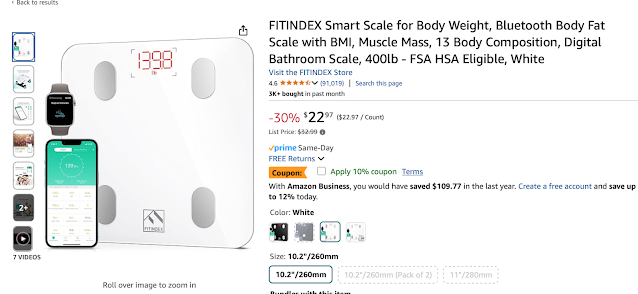This is my healthy living challenge partner and she is also the tech girl that handles all of our spreadsheets and reports- Gail Munck!
YES- both of these photos are of one of my best friends in the Universe- Gail.
Gail's journey to healthy living included the following:
1. 2207 Mini Gastric By-pass
2. Learning to live healthily with good portion control
3. Focusing on getting enough protein each day
4. Replacing her food addiction with healthy addictions which include exercise. First Gail became a work out maniac. If someone wanted a walking partner she would go, someone was going to the gym she would join them. A second friend was going to the gym later the same day she would go with them too. She has found committing to meet a friend at the gym greatly increases the likelihood she will follow through and go.
Then Gail added a deep addiction to knitting through taking classes and constant practice. And she has continued to hone this skill at a very high level. And she would tell you that when you are working with beautiful, fine yarns you do not snack on cheetos.
5.When Gail's husband retired and they began traveling a lot her exercise was part of the travel plan with lots of walking, hiking and biking.
And so you see that while gastric bypass or Ozempic can be weight loss tools neither will get you all the way to continued health and fitness. There are still important healthy habits to be forged.
Some of the big concerns with the current Ozempic fad are:
1. Gastrointestinal side affects- nausea, vomiting and diarrhea and harm to your microbiome
2. Sleep deprivation
3. Rebound affect-The appetite suppressant power of the drug and the quick weight loss don't lead you to build long term healthy habits so when you discontinue the drug your old habits return and you regain the weight.
4. Muscle loss- When you lose weight rapidly your body breaks down muscle for quick energy. Studies are showing that Ozemempic can lead to 20% of weight loss being lean muscle mass.
Loss of muscle mass is a huge issue as we age. Sarcopenia (loss of muscle mass) is a natural part of aging where after age 30 your body loses muscle mass and strength at a rate of 3-5% per decade. So as we get older and weaker the risk of falling increases. 3 years ago my mother fell, broke her hip and died within a week. She was healthy when she fell, so she basically died of weak muscles. When you have strong muscles and a strong core if you trip you don't fall all the way to the ground. You are strong enough to keep yourself upright.
This week's bonus challenge is inspired by a text Gail sent me this week.
"At the gym today I used their machine to tell me what my body fat percentage was and how much lean mass (muscle, bones,). I was 31% fat and my leans mass was 90lbs. According to the gym guy an adult woman of my height should have 100lbs of lean mass. I need to gain 10 lbs of muscle. He said to check it once a month to see if my plan was making progress. I’m going to be sure i am getting 100 grams of protein daily and do more weight exercise classes at the gym and at home I can use 5 lb weights to do more reps."
So ideally those of us working toward weight loss are working toward fat loss and trying to maintain and even build our muscle mass.
So this is a tricky challenge. I would LOVE it if you could all find a place to monitor your lean muscle mass and fat loss- either at a gym or by purchasing your own scale that gives that info. Amazon has one of these scales available pretty inexpensively
I have a similar scale and while I'm not sure it is as accurate as the reading Gail is getting from gym trainers I think I can trust the relative information. It can show me my percentage of lean body mass and if that is increasing or decreasing.
If your gym doesn't offer this monitoring and you don't have the funds for a scale to monitor your lean mass try sending a text out to girlfriends to see if they might have one you could go weigh in on every week or two.
So here is the weekly challenge:
1. Make an effort to monitor your percentage of body fat and lean mass during this competition by getting checked at the gym or buying or borrowing a scale. If this is totally not possible that's OK- you can still claim the weekly bonus points
2. Make a personal goal of how you are going to build muscle mass this entire year (NOT just during our competition). This could include increasing your protein intake and lifting weights on a regular basis. Decide how you are going to monitor and keep track of it.
3. Monitor your fat loss and muscle mass gain
When you have made your best effort claim the weekly bonus challenge points





No comments:
Post a Comment